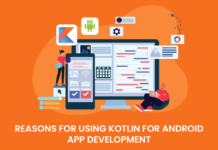The gaming business has grown steadily since its humble beginnings. It has transitioned from classic games like PackMan and Super Mario to more modern options like Elden Rings and even playing online poker.
The gaming market continues to expand with each passing year. In 2021, the global gaming market was valued at $198.40 billion, and it’s predicted to grow to $339.95 billion by 2027.
Thus, it makes sense that the gaming industry is booming. However, if you want to succeed given the intense competition and the expenses associated with producing a gaming app for iOS and Android, you had best make sure your game is fantastic.
But how exactly can you create a game for a mobile device? What are some of the peculiarities of the business? What is important to focus on?
We will discuss the numerous aspects of developing a mobile game app to help you create the next fan favorite.
Essential Steps to Design a Successful Gaming App?
Let’s examine the approach needed to create a game app from scratch.
Understand your motivations
To start with, you must understand your motivations. Why are you making a move into the gaming sector? What aspects of gaming most interest you? What motivates you and what are your main strengths?
You can conduct a SWOT analysis here. Use the inputs to explore the market and analyze your competition as well as within your business to identify your USPs (unique selling points).
Conceptualize your app
A gaming app’s success depends on a solid concept. Manage your team and come up with a brilliant concept that will captivate and interest your users.
The good news is that well-planned software can become popular right away, and you can enhance it by incorporating cutting-edge technology like augmented reality (AR) and virtual reality (VR).
You first strive to develop a fantastic concept, and then you work to provide gamers with the ideal gameplay.
Invest in quality game design
Constructing a successful game design might be challenging. The game’s design team must pay near-insane attention to the small details.
This will give the characters, artwork, and the general feel and appearance some life.
It’s crucial to balance the gameplay’s visuals and logic with a positive user experience. It’s best to take the time to work around the design because a poor app design might be disastrous for your business.
Meanwhile, a functional design that incorporates simple aesthetics could be a key differentiator for your game.
Choose your launch platform
You should consider the launch platform before making any plans for mobile. Usually, users must choose between iOS and Android.
Another option is to select a hybrid model. However, you must account for the extra expenses related to creating a game for several platforms.
Choose game development tech
You must choose design tools and plan development procedures after you have the game idea and the platform chosen. If performance is what you’re after, native development is a great choice.
The process typically entails coding in languages that are specific (native) to a certain device platform. You can choose Swift for iOS or Java for Android.
Additionally, you will discover that web technologies like CSS, JavaScript, and HTML5 are used in game development. The functionality and performance of your game in the future can be significantly impacted by your choice of technology.
Conduct in-depth market research
Understanding your target audience is made easier with market insights.
You can gain valuable insights into what is well-liked by players and what generates the most revenue. Search for the top trending gaming applications by visiting the app store and browsing the various game categories and genres.
Develop a captivating storyline
A great storyline is necessary for a game to succeed. Gamers will like the gameplay experience if you develop a plot for your game that features a vast cast of characters, surprises, compelling victory parameters, exciting game elements, and prizes.
Once your gamers become engrossed in the plot, it will encourage them to keep playing, and also pull in new players.
Optimize with app testing
Mobile gaming is not complete without game testing. To test your app and find faults and mistakes, you may opt to employ beta testers or use QA (Quality Assurance).
Testing software throughout development, from prototype to final release, helps guarantee a bug-free user experience.
Leverage monetization
Building a gaming app can be an expensive investment. Besides spending money on a development team, you also hire voice actors, artists, and other types of talent.
With this investment, you naturally want your game to be successful and generate a decent return on investment (ROI).
Choosing to monetize your game is never easy. On the one hand, you’re worried about your ROI, but you also don’t want to over-exploit your gamers. You can think about using either the premium or freemium models.
Popular strategies for monetizing your gaming app include
PPC ads
To monetize your game, you can use the pay-per-click (PPC) revenue strategy. These days, using the PPC approach is very common because it produces an amazing ROI.
A business can expect $2 for every $1 invested in a PPC campaign, claims Google!
You should exercise caution when placing the adverts since they can be irritating for users and work against you. You can offer players an ad-free version of the game.
Premium version
Before offering a premium edition of your game, you can provide a demo or a free trial.
The number of downloads for your game may be impacted by your decision to use a pay-once approach. Customers are considerably less willing to commit to full-priced mobile games.
Typically, this format is used primarily by high-quality games with lengthy development schedules and expenses from major developers.
Plan for maintenance and support
For a better experience, you should budget for support and maintenance after launching. Keep your game updated to keep players interested in new features, incentives, and surprises.
A successful launch and reception will be ensured by planning out each step of the app development process. Stick to a methodical development process in order to produce high-quality software that gamers will appreciate.
Conclusion
With businesses utilizing cutting-edge technical features, penetrating the app market may seem extremely difficult. By including social features and applying the steps listed above, you can develop a successful gaming app.
An app must be able to meet the demands of its target market and existing user base to be successful. Don’t be afraid to ask your customers what improvements they believe would increase their brand loyalty as it helps build your company’s reptation by enhancing their experience overall.










![Anso FG Reviews: UPDATED 2024 [ansofg.com] Anso FG Reviews UPDATED 2024 [ansofg.com]](/wp-content/uploads/2023/12/Anso-FG-Reviews-UPDATED-2024-ansofg.com_-100x70.png)







